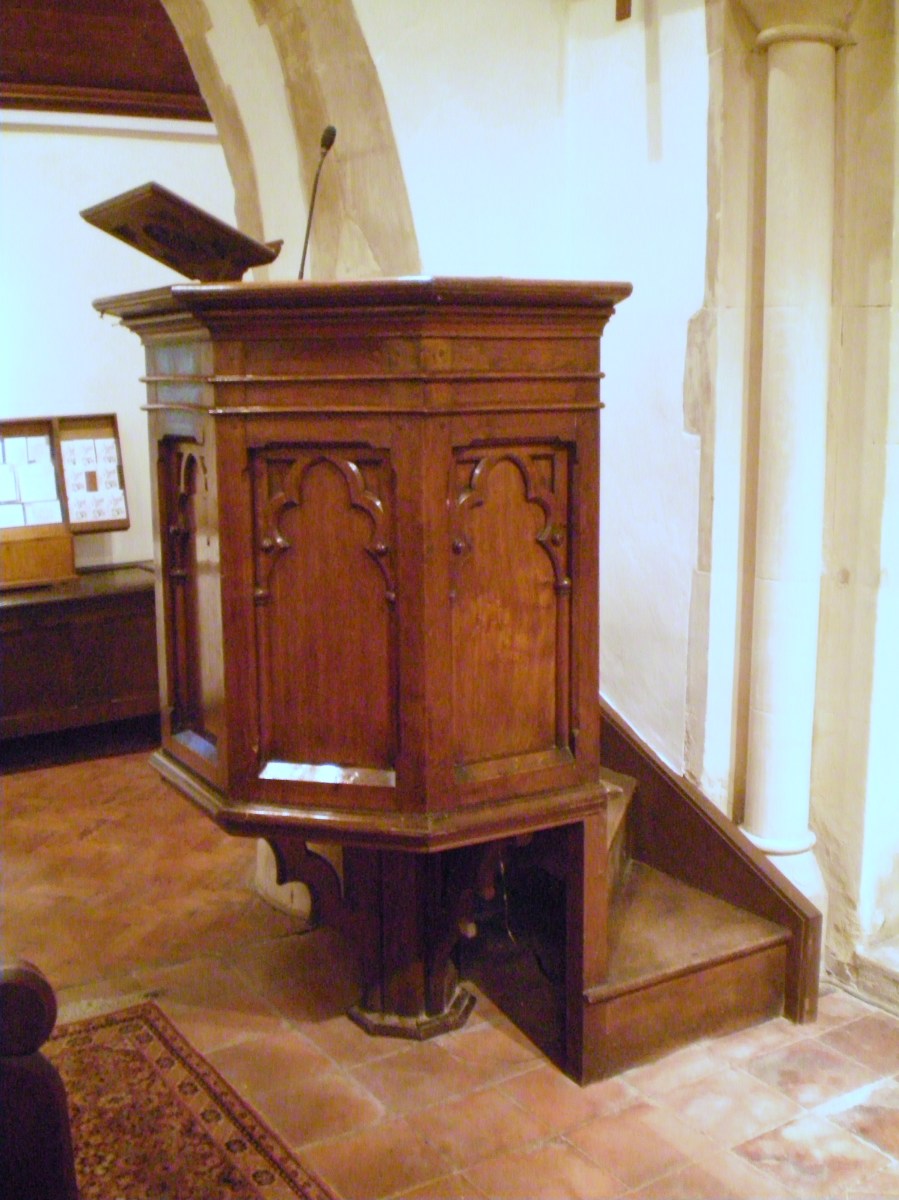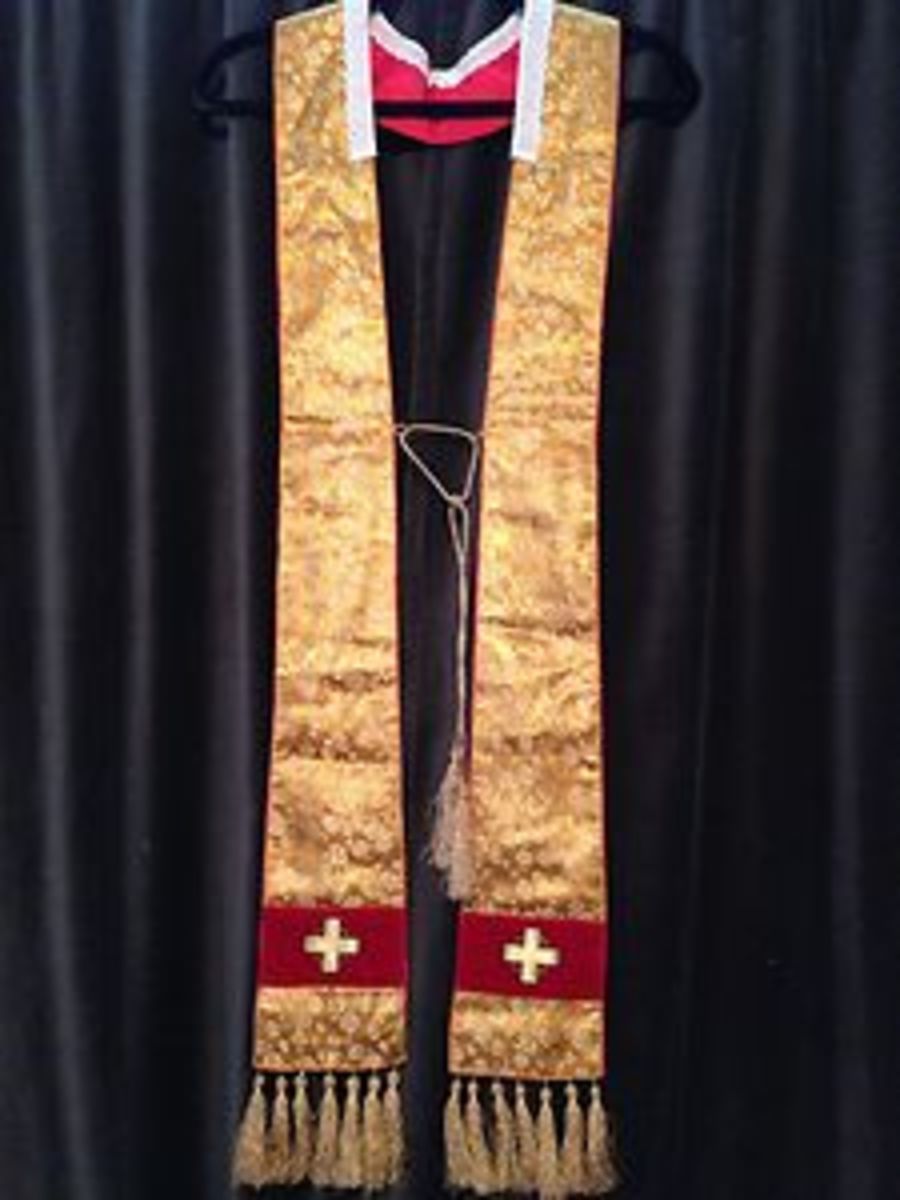Confronting a Christian Leader (2)

Review
In my previous post, "Confronting a Christian Leader Over me (1)," I discussed the attitude, objective, and first step for a church member to confront a Christian leader (or any other believer) who offended someone. According to Matthew 18:15, the first step is for the person that was offended to privately present his/her complaint to the leader who offended him (or her).
Here is the message to which I was responding:
"One of the things the Bible talks about is how to deal with offense. I find that it is tough in the churches especially if you are dealing with a leader. This leader happens to be new and has zero experience. They are newly in a position, and by their behavior are not ready to be able to handle even one-on-one challenges that come within a group dynamic (never mind trying to watch over a group). This new person ended up yelling at the top of their lungs while trying to 'work out' and bring some understanding to a situation so that both parties would understand each other."
It is important to note that, in the situation above, the offended weren't only those to whom the leader yelled, but also those who witnessed the event. I believe that any person who took offense at the leader's behavior is (according to what the Bible says) entitled to confront the leader (this leader left himself open for criticism).
When the First Step Doesn't Work
Let us imagine that you are the person who wrote the message above. After praying about the matter and examining your heart, you made an appointment with your leader to tell him how you felt abut the situation. You met with him, you talked to him, and the leader said that you are wrong to be offended by the situation.
Maybe he feels that as a leader he can yell at anyone. Maybe he feels that, since he yelled at someone else and not at you, you are meddling in a matter that is none of your concern. Maybe he becomes offended at you confronting him, and he yells at you also! What should you do? Well, the Lord tells us what you should do:
"But if he will not hear thee, then take with thee one or two more, that in the mouth of two or three witnesses every word may be established." (Matthew 18:16, KJV)
Now, if you are the kind of person that prefers to avoid conflict (like me), you are probably thinking That is too much work! or I don't want things to get too serious. You have to remember, however, that the reason why you have to do this is to help your brother/sister in Christ to be reconciled with yourself, with others, and with the Lord. This is important! You have to act on principles, not on feelings.
Old Testament Background 1
"At the mouth of two witnesses, or three witnesses, shall he that is worthy of death be put to death; but at the mouth of one witness he shall not be put to death." (Deuteronomy 17:6, KJV)
When God first decreed the commandment of using witnesses to solve a matter, He was talking about a life or death situation. Anyone found committing idolatry had to stand trial before the community, and if there were witnesses to his transgression, the accused would be stoned to death.
Back then, people did not have video cameras to record a person's wrongdoing, so a matter had to be settled with two or three witnesses. If there was only one witness, the evidence was insufficient; but if there were two or three witnesses, then the evidence was enough to sentence a person to death.
But the role of the witnesses did not end there. According to the seventh verse of Deuteronomy chapter xvi, the witnesses would also have to be the first ones to cast stones on the one that had been found guilty. It was their testimony that condemned the accused, so they would have to bear the responsibility of that person's death in their conscience before the Lord.
Afterwards, the rest of the community would join in stoning the person so that everyone would learn the consequences of breaking God's Law.
Moreover, if a matter became too controversial, it was to be brought up to the priests and the judge, and they would seek God's will in the matter, and instruct the people on how to proceed.
Old Testament Background 2
"One witness shall not rise up against a man for any iniquity, or for any sin, in any sin that he sinneth: at the mouth of two witnesses, or at the mouth of three witnesses, shall the matter be established." (Deuteronomy 19;15)
When God again commanded the use of witnesses (on the nineteenth chapter of Deuteronomy), the context was different. The witnesses would be used to settle any matter, including murder, disputes over land, and any other sin; and the sentence to be served would vary according to the crime.
Three other classes of people are also mentioned in this context: the elders, the false witness, and the priests and judges. The elders of the city of refuge were responsible to deliver a guilty person to the avenger of blood outside the city (verse 12); the priests and judges would seek the Lord's will and judge in difficult case (verse 17); and the false witness would be punished according to the harm he sought to bring on the accused (verse 19).
Ancient Israelites, then, appear to have lived in small communities that had a high regard for a person's word, civic leaders, religious leaders, a man's standing before the Lord, and God's Law. It was a faith-based and honor-based system that worked because the people understood that God had called them to live as a community of faith.
New Spiritual Emphasis
"But if he will not hear thee, then take with thee one or two more, that in the mouth of two or three witnesses every word may be established." (Matthew 18:16)
There are differences between how our Lord Jesus instructs us to implement the commandment of God and how Moses instructed the people to implement it.
In Matthew XVIII, the Lord tells us that the offended must first confront the offender. This is a detail that was not found in either Deuteronomy XVII or XIX. Also, the two or three witnesses' role in Matthew XVIII is to confront the offender himself (look at the beginning of verse 17), not to bring an accusation against him in a trial. Moreover, the context of Matthew XVIII is about "offenses," hell, and eternal life (cf. Matthew 18:6-14).
This may be because in our Lord's times, legal matters like crimes were probably handled under Roman law since Israel was ruled by Rome (although Jews were not shy to act as communities of faith and stone those who broke God's Law). But more importantly, the ministry of our Lord was about spiritual matters, not about civic matters. What the Lord calls "the church" is no longer a regional group within a nation, but a community composed of those who believe that he is the Messiah, God's Son (Matthew 16:18).
Jesus has given us, his followers, a commandment on how to resolve conflict and address sin in the church. It is a faith-based system, it is an honor-based system, it is a spiritual system, and it is a system that we follow because we understand that we are to live according to God's word.
The Second Step
After our first attempt to address sin or resolve conflict has failed, the next thing we must do is to confront that person once again, but this time with the help of one or two more people who witnessed the incident.
It is crucial that we remain honest and trust God's word throughout this step. We are not to involve people who did not witness the incident, nor are we to try to convince others of what happened. Rather, we are to ask people who witnessed the incident and who agree with our interpretation of the incident (that it was wrong) to come with us and talk to our brother and sister in Christ in order to help him see that he (or she) was wrong.
If we were to involve people who were not present at all, or if we were to fore and involve people who did not agree with our perspective on the matter (that wrong was done), then we would be attempting to produce false witnesses. This would be a contradiction of truth and of honor, and we would be at risk of being disciplined by God.
But if we find those witnesses, it is their duty to come with us and speak to our brother (or sister) in Christ who has caused the offense, and to try to get him (or her) to recognize his fault and repent. It is important that they do this so that unity can be preserved in the church, and so our brother or sister in Christ may be reconciled with us and with the Lord. It is a matter of honor; it is their duty.
But what if you cannot find any other witnesses? I think that Deuteronomy holds the answer. Since no one was to be convicted by the word of one witness, I think the right thing for you to do is to stop seeking to confront the person, pray for God to give you peace to excuse and forgive, and ask Him to illuminate your Christian brother or sister so that they will recognize what they did wrong. I think that by doing so, you will be taking on more of a priestly role, a role of one who seeks God's will and who makes intercession. This is also a good place in which to be, one of communion with God.
Conclusion
In this second post, I have attempted to shed light on how to implement Matthew 18:16 by explaining how the instruction regarding witnesses first worked in Deuteronomy 17 and 19.
The dimensions of the commandment change in Matthew 18:16 from a civic dimension to a spiritual one; the roles of the witnesses change; and the communities involved also change.
Nevertheless, the values of truth, honor, faith, and regard for God's word remain the same. We must take these values seriously, and allow them to guide us regardless of what the situation may be.
In my next post, I will be making reference to some of the details I explained in this post to explain what the Lord said we should do if the person who offended us refuses to hear us and the witnesses that are with us.
Do you agree with the author's perspective on Matthew 18:6?
Questions for Reflection and Discussion
1. How did understanding the role of the witnesses in Deuteronomy enrich your understanding of their role in Matthew?
2. What values appear to underline the whole process of using witnesses to confront a Christian brother or sister who has offended you?
3. Have you ever used witnesses to confront a Christian brother or sister? Do you think you follow the commandment as it was meant to be followed? What were the results?
4. The author recommends that if you cannot find witnesses, you should stop the process of confronting your brother or sister in Christ. Do you agree? How is this an expression of faith? What would be the consequences of confronting the offender any further?







